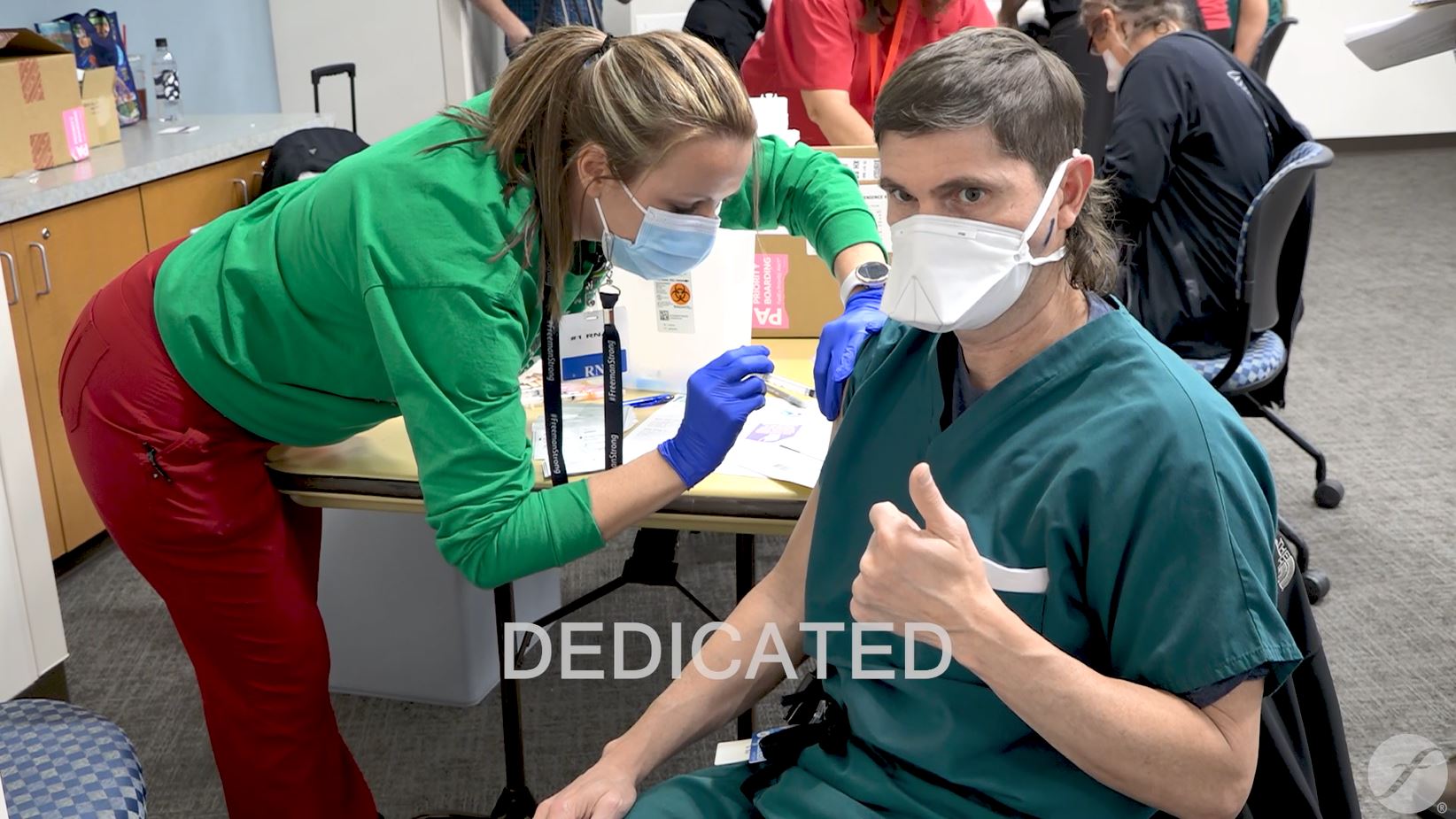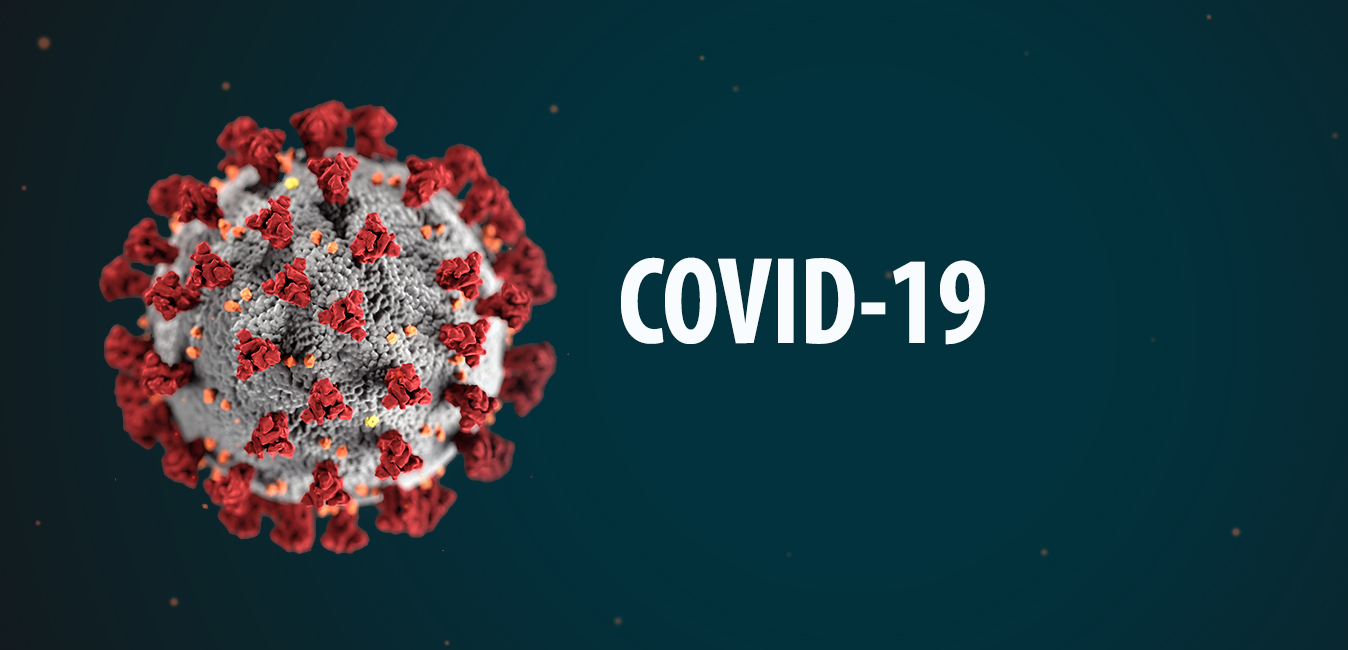Testing
If you need to be tested for COVID, please contact your primary care provider or Freeman Emergency Department. You can also visit one of the local testing sites listed below:
- CVS drive-thru pharmacy (112 E. 32nd St., Joplin)
- Walgreen’s drive-thru pharmacy (various locations)
- Walmart Neighborhood Market drive-thru pharmacy (various locations)
- NextGen Diagnostic Services (407 Pennsylvania Ave, Joplin. Parking lot on south side)
- Monday – Friday 9:00 am – 3:00 pm (Appointment must be made 24 hours in advance)
- Insured patients: No cost
- Uninsured patients: $150/test
- Drive-up testing – pull into parking spots marked with orange cones and staff will come to your car
- 417.362.6398
Booster Shots
Freeman recommends following CDC guidelines for booster shots.
Freeman providers led the way for our community in getting the COVID vaccine in December of 2020

Where to Go for COVID Treatment
For mild to moderate symptoms
Contact your primary care provider or visit your nearest urgent care. Mild to moderate symptoms include:
- Fever
- Cough
- Tiredness
- Sore throat
- Loss of taste or smell
- Headache
For severe symptoms
Go to your nearest ER. Severe symptoms include:
- Shortness of breath/difficulty breathing
- Chest pain
- Loss of speech or mobility
- Confusion
- High fever
COVID Antibody Treatments
Freeman administers COVID antibody treatments to patients at high risk for severe COVID symptoms to help reduce their risk.
These therapies require a physician’s order. If you feel you may benefit from these medications, contact your primary healthcare provider for more information. If you do not have one and would like one of our physicians to review your case, contact Freeman Academic Internal Medicine at 417.347.1095. Physician’s offices may contact Freeman directly to order outpatient infusions.
Visitors
Visitors are welcome at Freeman. Masks are recommended in general areas and required in patient care areas. Masks are available at the entrances to our facilities. If you are not feeling well or have been exposed to COVID, please refrain from visiting for now.
Frequently Asked Questions About COVID Vaccine
Updated 5/17/22
What does the vaccine cost?
Vaccine providers are allowed to charge an administration fee for giving the shot to someone. Contact your vaccine administrator prior to receiving your COVID vaccine to learn more
How does the COVID-19 vaccine work?
While the first COVID-19 vaccines are new to people, they are based on science that is more than 30 years old. These vaccines provide our bodies with only part of the genetic code of COVID (not a full weakened or dead virus like some vaccines). From that code, our bodies produce proteins that are harmless on their own, but they allow our immune systems to produce antibodies in response. Those antibodies will then be able to recognize and attack COVID-19 if we're exposed and it’s introduced into our body.
Who should get the COVID-19 vaccine?
Everyone ages 5 and up should get vaccinated against COVID-19. The vaccine will be a major factor in reducing the public health threat posed by the pandemic and will ultimately save lives and reduce hospitalizations. Please contact your primary care provider for more information.
Are there side effects to the COVID-19 vaccine?
Any vaccine or medication can cause side effects. You may experience common side effects, such as swelling and soreness in the arm where you got the shot, along with an overall low-grade fever, chills, tiredness or headache that go away within a few days. These symptoms are normal and are a sign that the body is building immunity. Safety is the top priority of any vaccine. Early results from the first COVID-19 vaccines tested in people show they worked as intended with no serious side effects. Talk with your Freeman provider about any specific concerns you may have.
What are the long-term effects of the COVID-19 vaccine?
We won’t know how long immunity lasts until we have more data on how well it works over a longer period of time. The protection someone gains from having an infection (called natural immunity) varies depending on the disease, and it varies from person to person. Since this virus is new, we don’t know how long natural immunity might last.
Should I get the COVID-19 vaccine if I'm pregnant?
Talk with your Freeman provider about any specific concerns you may have.
How will the COVID-19 vaccine be given?
The COVID-19 vaccination is administered as a shot in the arm. Some types of the vaccine need two shots within a certain time period to be effective. Current guidance recommends 21 – 28 days between vaccinations.
What if you have another condition – can you get the COVID-19 vaccine?
Those with certain underlying medical conditions are at high risk for developing severe COVID-19 illness and, regardless of age, are a high priority group for receiving the vaccine. Freeman providers will work to get you the best information so you can make an informed decision about the vaccine for yourself and your family.
Do I need the COVID-19 vaccine if I have the flu vaccine?
Yes, the seasonal flu vaccine is unable to provide immunity against the COVID-19 virus.
Should we wait to see if it’s effective before getting the COVID-19 vaccine?
These vaccines have been proven effective and are approved through FDA.
Can I stop wearing a mask and social distancing after I've been fully vaccinated against COVID-19?
The CDC still recommends wearing a mask, proper handwashing and social distancing after vaccination. The annual flu vaccination is still recommended. This guidance may change with more data about how effective the vaccine is over the long-term.
